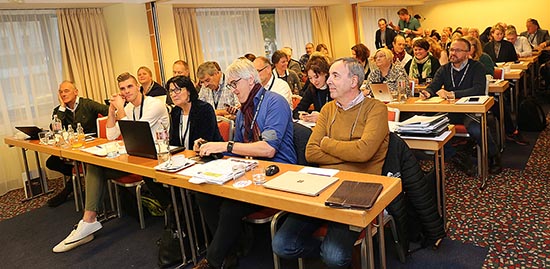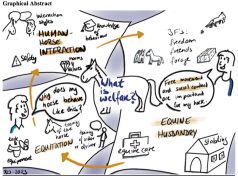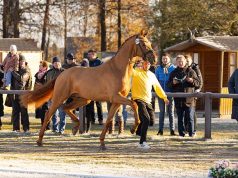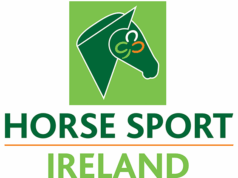By Celia Clarke
Photography: Susan Finnerty
Over 50 studbook, national federation and European Union representatives who attended the WHIRDEC meeting held on the Saturday of the WBFSH General Assembly, almost certainly discovered that an old Chinese curse – ‘May you live in interesting times’ – seems to be increasingly relevant in the world of international breeding legislation at the moment.
The purpose of this meeting is for WBFSH member studbooks – as well as national equestrian federations and ministries of agriculture, if they are able to attend -- spend a valuable half day going over new and future EU and other regulations that affect the horse breeding industry worldwide.
On this occasion there were some rather major issues raised concerning the recently introduced Zootechnics regulations and the forthcoming Animal Health Law, and the fact that studbooks need to be aware of these and take note of any action needed well in advance. This is particularly important for United Kingdom studbooks and those that import horses into and out of the UK, because if Brexit goes ahead, we will automatically become a Third Country. As such, the UK will then have to abide by all EU regulations to the letter (and without any possibility of applying for, let alone being granted, any derogations for things that are difficult for the UK) in order to be able to maintain any trade (import and export) with the EU after March 30, 2019.
The meeting was attended by a wide selection of studbook representatives (including a majority from Germany), who were able to draw on the expertise of a representative of the EU Commission to guide us through some of the more complex aspects of the legislation. The key facts that emerged that affect WBFSH member studbooks most directly are itemised below.
Zootechnic documents
(i) In passports: The format will remain pretty much as studbook pages in the equine passport are now. References to grading and performance tests etc. (if they exist) can be entered by adding relevant website addresses, where these can be accessed.
(ii) For transported germinal products: It is likely that these will be a combination of brief UELN/studbook breeding info supplied by studbooks, with an insemination certificate supplied by semen agent/stallion owner below it. The German studbooks said that they already have this in hand ready for the 2019 breeding season, but sadly didn't have a form available for other organisations to peruse. This new form is likely to be needed only for living stallions with semen collected after October 31, 2018 so old frozen semen will probably be exempt...CLICK HERE TO SUBSCRIBE TO BREEDING NEWSSUBSCRIBERS CAN READ THE COMPLETE ARTICLE BY LOGGING IN AND RETURNING TO THIS PAGE




